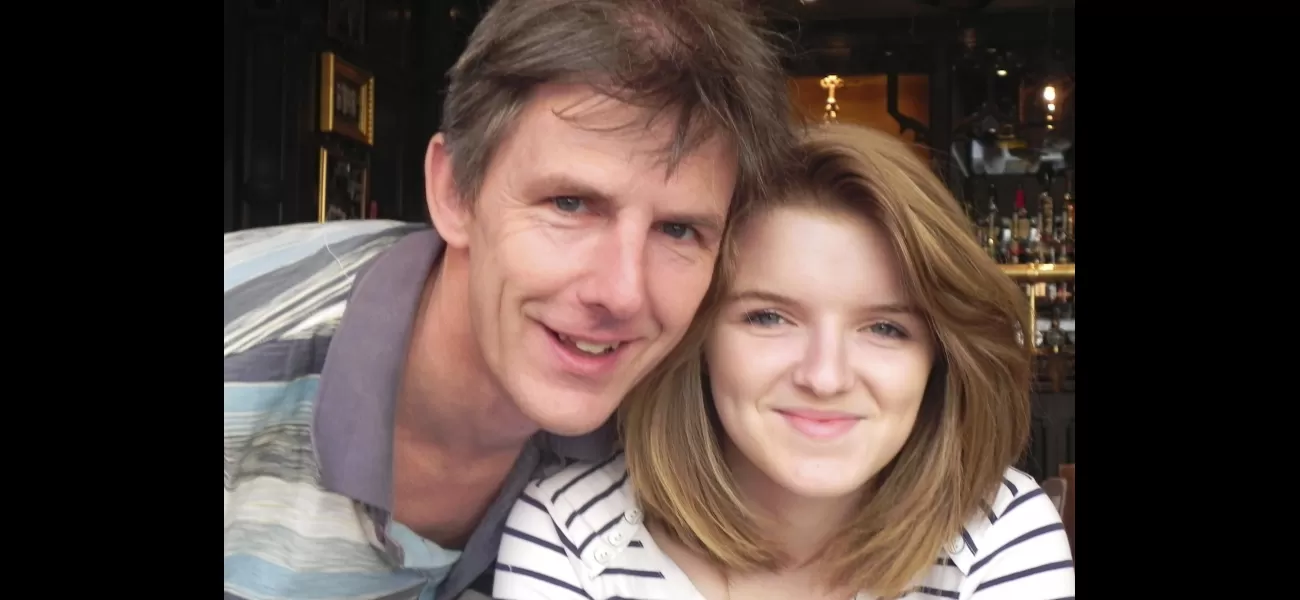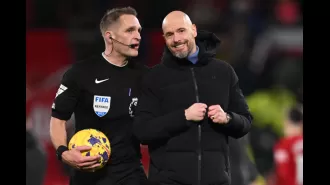Father fainted, doctor joked instead of giving brain scan.
Dad visited GP multiple times for dizziness, nausea, and weight loss.
May 4th 2024.

When Jess was just 16 years old, her world turned upside down. It was New Year's Day in 2012 and while most people were still recovering from the previous night's festivities, Jess's dad was out for his daily morning run. He was a very fit man, so this was nothing out of the ordinary. However, everything changed when Jess's mom told her that her dad had passed out on the sofa as soon as he got home.
At first, they didn't think it was anything serious, but they decided to take him to the hospital just to be safe. Jess was only 15 at the time, and she had no idea that less than 18 months later, she would be speaking at her dad's funeral. After that incident, her dad spent the day in the hospital, but nothing came of it. He was sent home that evening with no tests or scans, as the doctors thought he had simply overexerted himself while running on an empty stomach.
Little did Jess know, this wasn't the first time her dad had experienced such episodes. He had passed out while driving and even at work in front of his colleagues. In fact, her dad had been feeling dizzy, nauseous, and losing weight for months before that New Year's Day incident. But each time he went to his GP, his symptoms were dismissed as stress-related.
Months went by, and Jess's dad started to struggle with simple things like watching TV and constant headaches. But it wasn't until a family lunch on her mom's birthday that Jess realized something was seriously wrong. Her dad's headache became so intense that he had to lie down on a bench outside. The next day, her mom took him to the hospital, and that's when they discovered a tumor the size of a golf ball on the side of his head.
The doctors initially told her dad that the tumor was inoperable and he only had weeks to live. However, after being referred to a specialist, a surgeon was able to remove 90% of the tumor, giving her dad around 10 more months to live. But those months were filled with intense treatment and the constant fear of losing her dad.
In May 2013, Jess's dad passed away, and the following weeks were the strangest of her life. She and her family wanted his funeral to be a celebration of his life, and they were overwhelmed by the number of people who came to pay their respects. Jess, being only 16 at the time, decided to read a eulogy for her dad. She wanted everyone to remember him for his humor and energy.
Her dad was a vibrant and energetic person who always made the most out of every day. He would take long walks with the dogs, go on bike rides, and wake Jess up early in the morning to go for a run with him. He was always full of optimism and joy, even when he was going through intense chemotherapy. Jess remembers how he would try to make others laugh, even in a room full of cancer patients.
Looking back, Jess realizes that her dad's symptoms were not taken seriously by his GP and the staff at the hospital. If they had been more vigilant, her dad's cancer could have been diagnosed earlier, and he might have had more time with his family. That's why Jess is now an advocate for quick and accurate diagnosis and is calling for a National Brain Tumour Strategy.
Her dad's death has taught her the importance of being aware of one's own body and seeking a second opinion if needed. She urges others to pay attention to any unusual symptoms and not to be afraid to speak up if they feel something is wrong. Because as Jess knows all too well, a quick diagnosis and the right treatment can make all the difference in the world.
At first, they didn't think it was anything serious, but they decided to take him to the hospital just to be safe. Jess was only 15 at the time, and she had no idea that less than 18 months later, she would be speaking at her dad's funeral. After that incident, her dad spent the day in the hospital, but nothing came of it. He was sent home that evening with no tests or scans, as the doctors thought he had simply overexerted himself while running on an empty stomach.
Little did Jess know, this wasn't the first time her dad had experienced such episodes. He had passed out while driving and even at work in front of his colleagues. In fact, her dad had been feeling dizzy, nauseous, and losing weight for months before that New Year's Day incident. But each time he went to his GP, his symptoms were dismissed as stress-related.
Months went by, and Jess's dad started to struggle with simple things like watching TV and constant headaches. But it wasn't until a family lunch on her mom's birthday that Jess realized something was seriously wrong. Her dad's headache became so intense that he had to lie down on a bench outside. The next day, her mom took him to the hospital, and that's when they discovered a tumor the size of a golf ball on the side of his head.
The doctors initially told her dad that the tumor was inoperable and he only had weeks to live. However, after being referred to a specialist, a surgeon was able to remove 90% of the tumor, giving her dad around 10 more months to live. But those months were filled with intense treatment and the constant fear of losing her dad.
In May 2013, Jess's dad passed away, and the following weeks were the strangest of her life. She and her family wanted his funeral to be a celebration of his life, and they were overwhelmed by the number of people who came to pay their respects. Jess, being only 16 at the time, decided to read a eulogy for her dad. She wanted everyone to remember him for his humor and energy.
Her dad was a vibrant and energetic person who always made the most out of every day. He would take long walks with the dogs, go on bike rides, and wake Jess up early in the morning to go for a run with him. He was always full of optimism and joy, even when he was going through intense chemotherapy. Jess remembers how he would try to make others laugh, even in a room full of cancer patients.
Looking back, Jess realizes that her dad's symptoms were not taken seriously by his GP and the staff at the hospital. If they had been more vigilant, her dad's cancer could have been diagnosed earlier, and he might have had more time with his family. That's why Jess is now an advocate for quick and accurate diagnosis and is calling for a National Brain Tumour Strategy.
Her dad's death has taught her the importance of being aware of one's own body and seeking a second opinion if needed. She urges others to pay attention to any unusual symptoms and not to be afraid to speak up if they feel something is wrong. Because as Jess knows all too well, a quick diagnosis and the right treatment can make all the difference in the world.
[This article has been trending online recently and has been generated with AI. Your feed is customized.]
[Generative AI is experimental.]
0
0
Submit Comment





